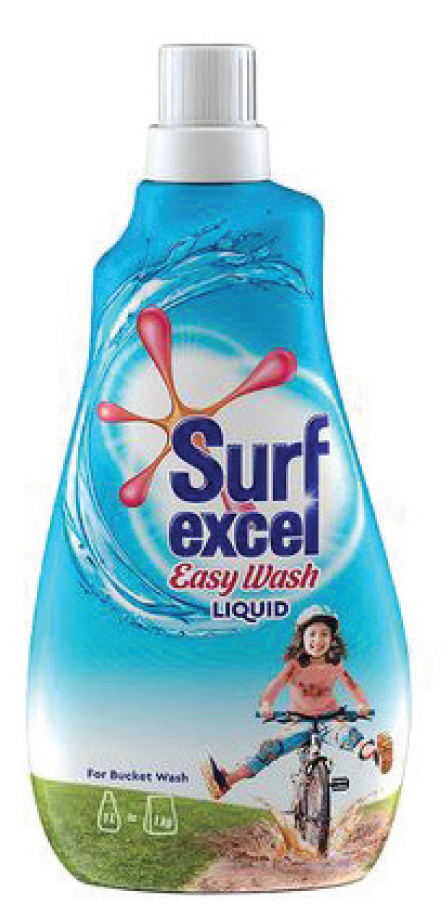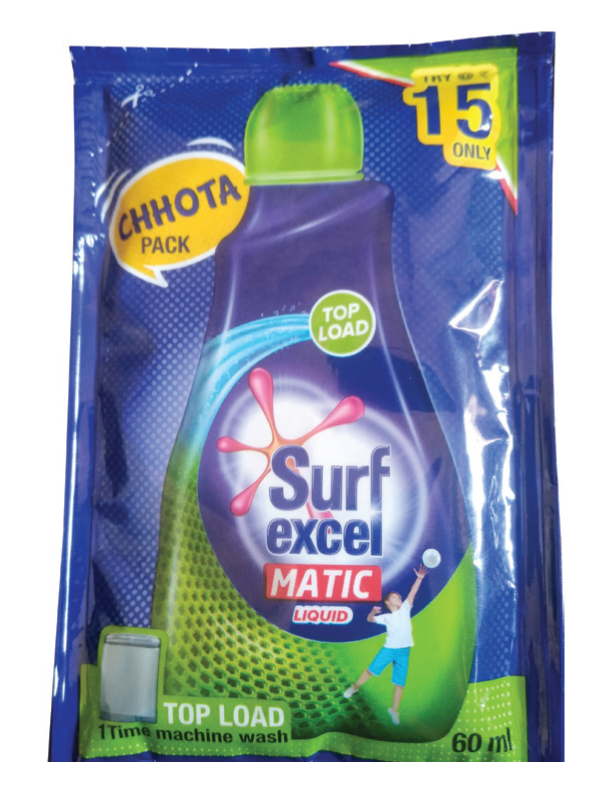Why have these superior products not made much headway?
Liquid detergents are the best solution for washing machines and are priced at almost similar levels to matic detergents. Why then have they not made much headway?
It is mainly due to the constraints mentioned below:
• Customers do not understand the price-value proposition: Most households go with frontline pricing without understanding price-value proposition of liquid detergents. Lack of awareness among customers about the effective price of liquid detergents is pushing customers away from making the purchase. It seems that HUL is deliberately keeping liquids and matics at the same price point despite the higher costs of manufacturing liquids, to encourage faster conversion. For now, competition from unorganised players is also low due to the higher investment required to manufacture liquids. In the medium to long term, it is likely that detergent companies can add more value to liquids (such as including softeners and conditioners), which will become difficult for unorganised / local players. This will build a durable moat for these products that could allow companies to price these products at significant premiums to matics.
• Misconception that liquids are stain removers: Detergent companies need to fine-tune marketing/ communication strategy as far as liquid detergent is concerned. Most consumers believe that liquid detergents are only for stain removal, not for washing clothes.
• Lack of availability: Distribution of liquid detergents has been restricted to metros and tier-1 cities, that too through modern trade and e-commerce. Its reach is almost negligible in general trade. This lack of product availability on a pan-India basis has restricted off-take of liquid detergents. Lack of availability in an LUP format (customers have to spend a minimum Rs 99 to purchase liquid detergents) has led to lower trials amongst customers.
• ‘Maid’ phobia: People who hire domestic workers are paranoid that even after explaining how liquids work, they will end up using more than the necessary quantity. This is also delaying the adoption of liquid detergents. Shreena Jani, a freelancer, recounted her experience. Her domestic help takes care of all her household chores. “I purchased liquid detergent once and despite giving clear instructions about what quantity of liquid to use, my maid finished the entire 1 litre bottle of Surf Excel Liquid detergent in 10 days when it should have lasted at least 25-30 days. Her maid’s contention was that the liquid was not foaming so clothes would not be washed properly. “She kept on pouring additional liquid detergent looking for more foam,” laughs Jani. Not surprisingly, she decided to switch back to matic powder. Clearly, FMCG companies need to spend money to train decision influencers (like what Henko did for Pril dishwashing liquid many years ago) in order to encourage consumption.
“The cost of manufacturing liquids is higher than matics since they are in highly concentrated form and the manufacturer needs to ‘settle’ all the ingredients within the liquid. Because of this, batch and production time are much longer than those for matics. This makes manufacturing liquids costlier.”
– Prabhat Jha of Universal Healthcare – a Silvassa-based contract manufacturer for many liquid detergents brands
HUL has taken up the mantle to increase consumption of liquids in a meaningful manner
Hindustan Foods, with a Rs 2.5bn topline, is one of the largest organised FMCG contract manufacturers, has been contract manufacturing detergent powders and liquid soaps for HUL. Now, it plans to invest up to Rs 1bn in building a liquid-detergent manufacturing facility in Hyderabad – in addition to its existing detergent powder facility. This would be one of the largest contract manufacturing detergents facilities in India for HUL. With an asset turnover of 7-8x, the sales of liquid detergents are expected to pick-up in a big way ahead.
HUL is poised to drive the premiumisation story in India – that much is certain
Liquid detergents refill packs: A brilliant strategy
HUL has recently introduced refill packs for liquid detergents, which, apart from reducing plastic pollution (eliminates the need for using plastic bottles), also helps to reduce costs for the customer (refill packs are priced at least 10% lower than bottles).
HUL has very recently launched liquids even for bucket wash. Realising that many households still do not own washing machines, HUL did not want liquids to remain restricted merely to metros and tier-1 cities. It launched Surf Excel Easy Wash liquid for bucket wash.
Leaving no stone unturned for meaningful growth in its liquid portfolio, HUL has decided to deploy an age-old strategy of giving samples (Rs 15 SKU) to MT customers and educating them about why liquids is the best solution. Access / low units packs, which are not widely available in the liquid portfolio, may become a norm if HUL so decides.


Subscribe to enjoy uninterrupted access